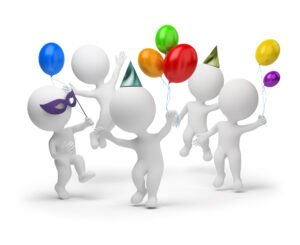 Leisure activities are a core part of the person’s activities of daily living and it is essential that they are considered in the process of rehabilitation. In this setting the Occupational Therapist has a key role in assessing and supporting participation in leisure activities.
Leisure activities are a core part of the person’s activities of daily living and it is essential that they are considered in the process of rehabilitation. In this setting the Occupational Therapist has a key role in assessing and supporting participation in leisure activities.
Oxford Dictionary definitions of leisure include:
- Time when you are not working.
- Free time.
- Time used for enjoyment or to achieve something
In healthcare there is an understanding that ‘leisure contributes to mental, physical, social and emotional health and general well-being’ (Caldwell, 2005). It therefore follows that leisure can contribute to health and wellness following Acquired Brain Injury (ABI).
Ideally leisure should have the following characteristics:
- Time: it should be enjoyed in allocated leisure time without additional
 distractions, commitments and constraints.
distractions, commitments and constraints. - Choice: the person should be supported to choose activities that they are motivated to participate in, value and find satisfying.
- Experience: the person should find the leisure activity meaningful and enjoyable.
- Contribute to improved quality of life.
Following ABI, the person may require a period of rehabilitation. Brain injury can lead to person experiencing a significant disruption to their life and this rehabilitation process should include redefining and rebuilding their ‘new life story’. Supporting a return to meaningful leisure activities should be regarded as an integral part of the rehabilitation process. Leisure will assist the person to adjust to the difficulties they are experiencing after brain injury; helping them to cope with this adverse life event “by restoring some aspects of self, and by affording a context for personal transformation” (Kleiber, Reel & Hutchinson, 2008).
It is important to help the rehabilitation team, carers and family understand that leisure is not just a hobby but a lifeline, an integral part of the ongoing rehabilitation process and essential for optimal physical and mental wellbeing. After ABI the person’s roles and responsibilities may change. This frequently means that the person may need to find meaningful ways to fill their time and improve quality of life. Leisure can provide:
- Enjoyment and freedom from focus on ongoing difficulties; an opportunity to focus on activity rather than inactivity.
- Connection with pre-injury life, activities and enjoyments, may support maintenance of pre-existing relationships as well as the development of new friendships and social networks.
 The building of rapport and trusting relationships.
The building of rapport and trusting relationships.- Motivating and engaging activities which can lead to enhanced rehabilitation potential.
- Opportunities to practice skills and routines necessary for meaningful leisure activities can help with transition to home/community.
- A sense of achievement, leading to increased self esteem and confidence. Please refer to Maslow’s Hierarchy of Needs (Maslow, A.H. (1943). “A theory of human motivation”. Psychological Review. 50 (4): 370–96).
Assessment of Leisure Activities
How to Support Participation in Leisure Activities